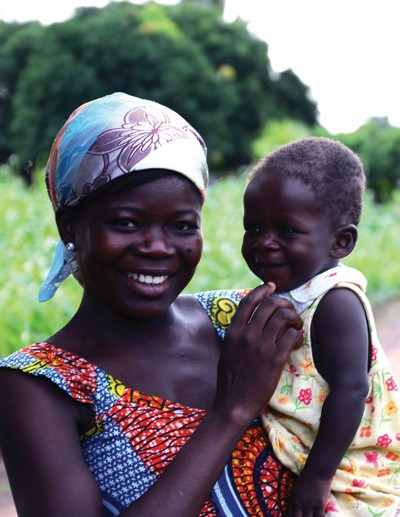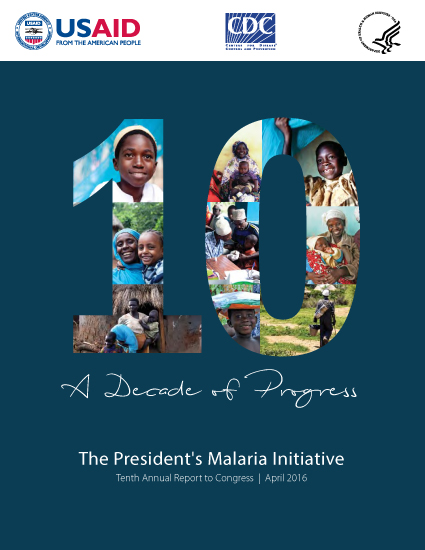April 2016
A DECADE OF GLOBAL PROGRESS
The malaria fight is one of the most inspiring global health stories of our time. Investments in malaria prevention and control have been among the best investments in global health and development, resulting in a dramatic decrease in malaria deaths and illness. Working together, hundreds of millions of people have been reached with effective preventive tools and diagnosis and treatment. Even in the poorest of settings where malaria flourishes, we are arming women, children, and families with cost-effective tools to protect themselves from malaria and with fast-acting medicines to cure malaria if they do become infected.
The year 2015 marks a decade of renewed U.S. Government leadership and commitment in the global malaria fight. The past decade witnessed a key turning point in the long battle against malaria, and we have reached several historic milestones. Global progress on malaria control has been unequivocal – the World Health Organization estimates that more than 6.2 million malaria deaths were averted worldwide between 2000 and 2015. Most of these estimated lives saved were among children under the age of five living in sub-Saharan Africa – the most vulnerable group at risk for malaria. During this time period, new malaria cases fell by 37 percent, and malaria mortality declined by an estimated 48 percent worldwide. Even greater reductions in malaria mortality were recorded in sub-Saharan Africa, where deaths among children under the age of five declined by 71 percent. Based on these results, the World Health Organization and UNICEF reported that the Millennium Development Malaria Goal of halting and reversing malaria incidence by 2015 was achieved.

These momentous gains in loosening malaria’s grip are the collective result of significant and well-coordinated investments by national governments and donors, support from technical agencies and national institutions, and the hard work and dedication of health workers, non-governmental organizations, and affected communities. These investments have translated into a formidable scale-up of proven, cost-effective, and life-saving malaria control interventions, namely insecticide-treated mosquito nets (ITNs), indoor residual spraying (IRS), intermittent preventive treatment for pregnant women (IPTp), diagnostic tests, and highly effective antimalarial drugs.
The U.S. Government’s leadership and its financial and technical contributions through the President’s Malaria Initiative (PMI) have been central to the remarkable achievements of the past decade. The story of U.S. leadership in the fight against malaria is one of immense success and progress. President George W. Bush launched PMI and pledged U.S. support for the Global Fund to Fight AIDS, Tuberculosis and Malaria (Global Fund). President Barack Obama significantly expanded the Initiative, and bi-partisan leadership from the House and Senate sustains our work. During this time, PMI has garnered recognition from diverse stakeholders as a highly effective program that successfully pairs global leadership on malaria prevention and control with solid country-level partnership and support.
Investment in the malaria fight is one of the best buys in global health. The push to end malaria is saving millions of lives, increasing attendance at school, improving worker productivity, and boosting local economies. Ending malaria will help build a healthier and more secure world. We can be the generation that ends malaria – one of the oldest and deadliest diseases on the planet.
Read the full report: A Decade of Progress: The President's Malaria Initiative Tenth Annual Report to Congress








Comment
Make a general inquiry or suggest an improvement.